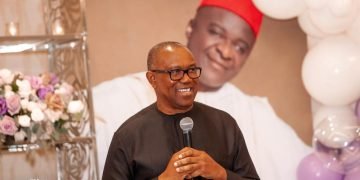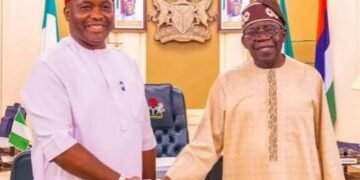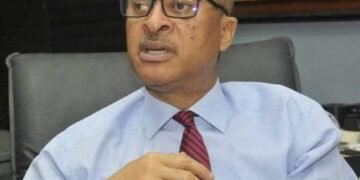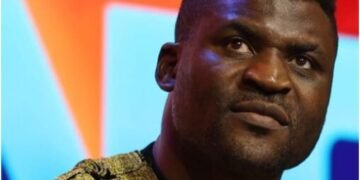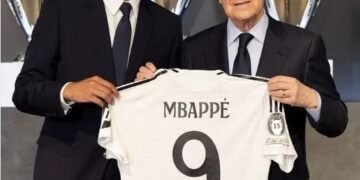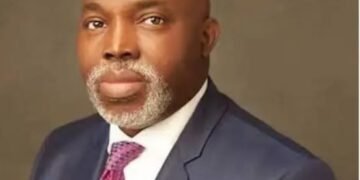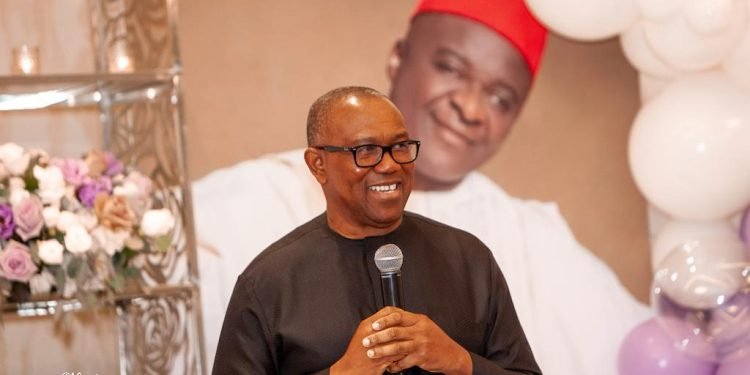By Dan Onwukwe
Every election campaign has its cadence and rhythm, style and sparkle that sets it apart from previous ones. Similarly, it throws up unique individuals that have strength of character and conviction that the rest of us look up, especially in turbulent times. In all sincerity, looking back at the Feb 25 Presidential election, Mr Peter Obi, the Presidential candidate of the Labour Party, is an exemplar, a role model for anyone still searching for a solid philosophy that should guide and drive his ambition in life. It’s even more so for our new generation of politicians, the youth, in particular.
It’s not for nothing that when Obi declared his ambition to contest for the presidency, the country was aglitter. The youths who have been yearning for new ways of doing things, became very excited. Peter Obi, it seems, woke them up from slumber. It was like sunshine after the storm. Obi, by every measure, is uniquely different. On the campaign trail, his ideas, his messages, and the energy he generated, resonated well with the populace, except those who are used to feeding fat on Nigeria’s pork barrel politics. Didn’t you see the bedlam that heralded President Tinubu’s convoy into Lagos for the Sallah celebration? Obscene, isn’t it? Well, the ‘emilokan’ has made it clear that he is in no hurry to fix the economy, after all, the naira redesign could not stop him from being declared as President. This is an early warning about what lies ahead. What happened in Lagos two weeks ago, was an open display of impudence and outright recklessness at public expense. You can’t ask the citizens to make sacrifices when the leader doesn’t live by example. It’s pure hypocrisy. Some leaders of the National Assembly, including the Senate President and Speaker, House of Representatives, are already displaying obscene opulence amid extreme hardship in the country. Hypocrites lose their footing the very moment they hold others to standards they cannot keep. Interestingly, whatever a politician does is noticed beyond our boundaries. That is why, almost five months after the highly compromised presidential election, Obi is still garlanded, even beyond our borders. His message and comportment remain a moral compass for democracy beyond Nigeria. He’s now a reference point of how a politician should conduct himself – in grace, even in the face of provocation. In many years to come, he will be seen as the conscience of our democracy, the rescuer of the sinking Titanic called Nigeria. And you begin to ask: Why is this man different? Only recently, Chairman of the Political Parties Regulations Commission( PPRC) in Sierra Leone, Abdulai Bangura, spent precious time urging politicians in his country ahead of the election, that was won by the incumbent President Julius Maada Bio, to emulate the example of Peter Obi. It was not for nothing.
This is what Bangura said about Obi: “I have always referred to Peter Obi when he lost the election(in Nigeria). We all know the promise he made when the election was being conducted. Everybody who is anybody in Nigeria, threw their support for him. But when the result came out otherwise, he didn’t call his supporters out to the streets to wreck havoc. He took the legal path…and saved his country from chaos”. Not only did Bangura encourage politicians in Sierra Leone to learn from the example of Obi, he stressed that “leadership is about self-restraint, about selflessness. And we expect that our politicians will demonstrate this”. Even though the opposition parties in Sierra Leone protested the outcome that saw Bio reelected, Obi has become a good testimonial of democracy in Sierra Leone, and elsewhere in the African continent. Obi lives by example. It was Thomas Jefferson, the third President of the United States( 1801-1809) who said that “politics is such a torment”, that he would advise every one he “loves not to mix with it”. Jefferson was lamenting the raw, unadorned nature of politics, the terrible things some politicians can do for the sake of power, forgetting the nuanced essence of leadership at the highest level, that is, to serve for the greater good of humankind. In Nigeria, Obi has demonstrated that no one wants to follow a Franken-leader, anymore, the kind of leadership that has brought tears and sorrow to Nigerians.
It is for good measure. The difference Obi has shown, the personal resources he has committed to this cause, reveals the quality of his uncompromising character of anything that is unwholesome and revolting. These are virtues that are lacking in many of our politicians today. He said that much during the campaign. This particular quote caught everybody’s attention: “I will rather lose doing the right thing than win doing the wrong thing. Hunger takes people to the streets, but job and food, take them out of the streets and crimes”. These are timeless words on the marble. They are words of a man with uncommon wisdom and conviction, not platitudes. In all his political pursuits, Obi has shown by words and deeds, an unflappable commitment to modern democratic leadership, that it should revolve around person- to- person conversation, intimacy, with focus on top-down distribution of information, to bottom-up exchange of ideas. It makes gaining people’s trust, levelling with them, and solving their problems, possible. This is what is called ‘Conviction Politics’. What does this mean? Simply put, it’s the practice of campaigning based on a politician’s own core values rather than attempting to represent existing consensus or popular opinion in the polls. Former British Prime minister, Margaret Thatcher, explained this better, when she said ahead of an election in which she was a candidate, “I am a conviction politician, not swayed by any doctrine or fancy”. How many of our present crop of politicians can stand firm in his conviction? Is it Nyesom Wike, or Dave Umahi, or anyone else in APC or PDP? Obi has brought new hope and optimism, a warm hand to our polluted politics where personal survival is the driving force. Without a doubt, Obi has redefined our politics more than any other politician in the past four decades. His realism and ability to look facts – even very unpleasant facts – in the face and not let himself be deluded by wishful thinking. If you like, this is a political version of a businessman’s interest in a balance sheet, always striving that the right thing be done. And it starts with good leadership. Obi’s journey to political greatness has just begun, regardless of the final outcome of the election petition before the Presidential Election Tribunal. Taken together, what Nigerians witnessed in the last election was a complete abhorrence of how not to conduct a democratic governance. Nigeria’s reputation in the eyes of the international community has been tarnished, almost irreparably. The outcome is that Nigeria will now be harder for its friends to like, and even much harder for its foes not to hate. Obi, has proved time and again, that with the right message, a candidate with no war chest, or so-called “structure” or machine behind him, can truly be a rallying point for the good things we desire in our politics and in our country. Whatever adverse criticism the INEC Chairman, Prof Mahmood Yakubu continues to get, he brought it upon himself.
When the history of the election will be finally written, historians will record it that Yakubu could not withstand the pressure when firmness of character was needed. He became a jellyfish and unhappy warrior when strong conviction was required. All this has brought out some deep-rooted weaknesses in a man many of us garlanded as a moral compass that was supposed to direct our elections to safer ground. Sadly for him, he has broken his own pledge to conduct a transparent democratic election that Nigeria and the rest of Africa would be proud of. The pain that won’t heal anytime soon is that millions of Nigerians who voted on February 25, desired free, fair, credible and transparent elections, but they got a sham and disgraceful outcome. This is how history will remember the present INEC led by Yakubu. While his stars and status fade, Obi shines and soars
